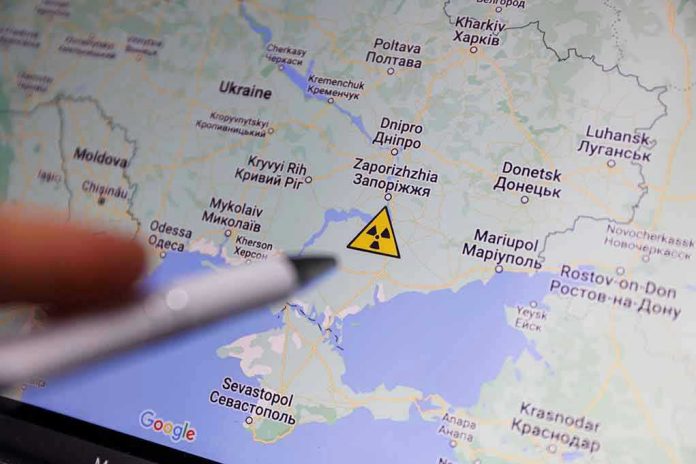
European leaders are doubling down on nuclear cooperation just as American reliability takes a back seat, raising the stakes for everyone who cares about real security and the future of Western civilization.
At a Glance
- UK and France sign the Northwood Declaration, pledging unprecedented nuclear coordination
- Agreement responds to fears of a Russian threat and declining US commitment to European defense
- Joint missile development and operational planning will increase Europe’s nuclear capabilities
- Move signals a dramatic shift in European self-reliance and autonomy on defense policy
UK and France Join Forces as U.S. Leadership Stalls
On July 10, 2025, British Prime Minister Sir Keir Starmer and French President Emmanuel Macron inked the Northwood Declaration, laying the groundwork for deeper nuclear cooperation between the two largest military powers left in Western Europe. This isn’t just a bureaucratic handshake—this is a direct reaction to rising Russian aggression and, let’s be honest, the spectacular uncertainty that’s come from America’s on-again, off-again commitment to European defense. Washington’s waffling and NATO’s endless talk have left a power vacuum, and the UK and France have decided they’re not waiting for the next round of American political drama to secure their own backyards.
Both governments are setting up a joint Nuclear Steering Group, which will coordinate everything from policy to missile technology, and make sure no threat to Europe goes unanswered. The message is clear: if Moscow thinks Western Europe is vulnerable, it’s got another thing coming. At the same time, this is a warning to any American politician who thinks European security is someone else’s problem. After all, the Biden administration’s “lead from behind” approach and fixation on woke priorities left our allies scrambling for real leadership—and now they’re taking matters into their own hands.
From Cold War Caution to 2025 Realpolitik
UK-France nuclear ties go back decades, but it took the Russian invasion of Ukraine and the endless uncertainty from Washington for these two powers to finally say enough is enough. The Lancaster House Treaties in 2010 started the ball rolling on joint defense, but the Northwood Declaration is the first time the two have explicitly committed to coordinating their nuclear deterrents. In other words, when Moscow saber-rattles, it won’t just get a starchy diplomatic note—it’ll face a united front with real teeth.
What’s driving this? Look no further than the parade of crises that’s swept Europe since 2022. Russian missiles rain on Ukraine while American politicians argue over pronouns and pronouncements. No wonder Paris and London are investing in joint deep-strike missiles, anti-ship capabilities, and, crucially, shared operational planning. The old days of trusting the US to be Europe’s big brother are over—at least until Washington decides that upholding the West means more than subsidizing chaos at home and abroad.
A New Era of European Deterrence—But At What Cost?
For now, the UK’s Trident and France’s Force de dissuasion remain independent, but the lines between them are blurring fast. Both countries insist this is about “enhanced deterrence” and “reassurance” for NATO allies. But let’s be real: this is as much a hedge against more American backsliding as it is a response to Russian threats. The fact that Ukraine is specifically called out for support in the agreement speaks volumes—it’s a signal that Europe’s core powers are prepared to act with or without the White House’s blessing.
The long-term impact? This could be the start of a truly autonomous European defense structure. That means less reliance on unpredictable partners, more focus on real-world threats, and—maybe most importantly—a wake-up call for anyone who thinks the old postwar order still holds. But it also raises tough questions about command, control, and the risk that a miscalculation could draw the continent into a nuclear crisis. Not that Moscow’s going to lose sleep over European hand-wringing—Putin’s propaganda machine will just spin this as another excuse to threaten London and Paris with annihilation.
Serious Implications for the U.S.—and for the Future of the West
Some so-called experts are already warning about escalation, but here’s the bottom line: European security got a whole lot more robust, and the days of free-riding on American power are over. Defense industries in the UK and France are set for a windfall, joint missile programs will accelerate, and the message to the world is that the West—at least some of it—still knows how to defend itself. Whether Washington wakes up and remembers what leadership looks like remains to be seen, but for now, the ball is firmly in Europe’s court.
As the dust settles, European citizens face a stark choice: keep trusting in distant, distracted allies, or take control of their own destiny. The Northwood Declaration is a bet that real security comes from strength, not slogans—and it’s about time.
Sources:
UK Government Joint Statement, Northwood Declaration
The War Zone, Defense Analysis
Sam Freedman, Substack Analysis
NPR/KHSU, Expert Interview with Jon Wolfsthal



